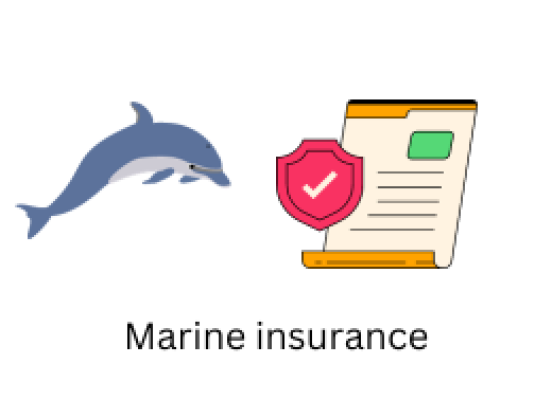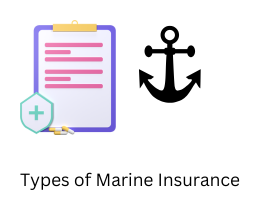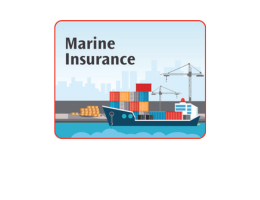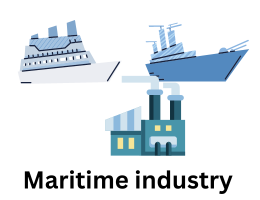
Marine Insurance Policies: Exploring the components and features of marine insurance policies, such as coverage, terms, and conditions.
- By admin --
- Wednesday, 08 Nov, 2023
Marine insurance policies are a critical component of the shipping and maritime industry, providing protection against the numerous risks and uncertainties that vessels, cargo, and other maritime interests face during their journeys across the seas. These policies are specifically designed to safeguard the interests of shipowners, cargo owners, and other stakeholders involved in maritime activities. In this article, we will explore the components and features of marine insurance policies, including coverage, terms, and conditions.
1. Coverage in Marine Insurance Policies:
Coverage is the heart of any insurance policy, and marine insurance is no exception. These policies typically encompass a broad range of perils and risks that can affect maritime activities. The coverage provided by marine insurance policies can be categorized into several key areas:
a. Hull Insurance: This component of marine insurance covers physical damage to the vessel, including accidents, collisions, and damage caused by external factors like storms and natural disasters. Hull insurance ensures that shipowners are financially protected in the event of damage to their vessels.
b. Cargo Insurance: Cargo insurance is designed to protect the cargo owners from loss or damage to their goods during transit. It covers various perils, such as theft, damage, fire, and accidents that might occur during loading, unloading, or transport.
c. Liability Insurance: Liability coverage in marine insurance policies addresses legal liabilities arising from accidents, collisions, or damage caused by the insured vessel to third parties. It includes protection against claims from other ships, ports, or individuals affected by maritime accidents.
d. Freight Insurance: Freight insurance provides coverage for the freight or revenue a vessel owner would have earned if the cargo had arrived at its destination without any loss or damage. This ensures that shipping companies are not financially impacted by cargo-related losses.
e. P&I (Protection and Indemnity) Insurance: P&I insurance is a specialized form of liability coverage that focuses on non-collision risks, such as crew injury, pollution, and legal liabilities. It is typically used by shipowners to protect against a wide range of maritime liabilities that may not be covered by standard liability policies.
2. Terms and Conditions in Marine Insurance Policies:
Marine insurance policies are legally binding contracts that specify the rights and obligations of both the insurer and the insured. These policies are typically characterized by certain terms and conditions that govern the coverage, claims process, and other aspects of the insurance agreement. Here are some essential terms and conditions found in marine insurance policies:
a. Premium: The premium is the amount the insured pays to the insurer in exchange for coverage. It is determined based on factors such as the type of coverage, the insured value of the vessel or cargo, the route, and the perceived risks involved. Premiums can be paid as a one-time payment or in installments.
b. Deductible: Marine insurance policies often include deductibles, which are the amounts the insured is responsible for paying in the event of a claim. Higher deductibles can lead to lower premiums, but they also mean that the insured bears more of the financial burden in the event of a loss.
c. Named Perils: Policies specify the perils or risks that are covered explicitly. These named perils may include specific types of accidents, weather events, or other causes of loss. It's important for the insured to understand these perils and ensure that their specific risks are adequately covered.
d. Exclusions: Exclusions are conditions or situations that are not covered by the policy. Common exclusions in marine insurance policies may include war, piracy, intentional damage, wear and tear, and inherent vice. Insured parties need to be aware of these exclusions and consider additional coverage if necessary.
e. Geographical Limits: Marine insurance policies often define geographical limits within which coverage is valid. The insured should be aware of these limits and ensure they align with the intended voyage or route.
f. Subrogation: Subrogation is a legal concept where the insurer has the right to pursue claims against third parties responsible for a loss after they have compensated the insured. This helps prevent double recovery and allows insurers to recover part of their payout.
g. Notice and Reporting: Policies require the insured to promptly report any incidents, losses, or damages to the insurer. Failing to provide timely notice can result in claim denials. Insured parties must adhere to these reporting requirements.
h. Cancellation and Renewal: Policies may outline the circumstances under which they can be canceled or renewed. Understanding these provisions is essential for maintaining continuous coverage.
i. Warranties and Conditions Precedent: Some policies may include warranties or conditions precedent, which are specific requirements that must be met by the insured. Failure to meet these requirements may void the policy or affect the coverage.
j. Claims Handling: The policy will detail the process for filing and handling claims, including the information and documentation required to support a claim. It is crucial for the insured to follow these procedures diligently to ensure a smooth claims process.
Conclusion:
Marine insurance policies are vital tools for mitigating the financial risks and uncertainties associated with maritime activities. They offer coverage for a wide range of perils and provide a legal framework that outlines the terms and conditions of the insurance agreement. Understanding the components and features of marine insurance policies, including coverage, terms, and conditions, is essential for both shipowners and cargo owners to ensure they are adequately protected during their maritime endeavors. By comprehending the nuances of these policies, individuals and businesses can make informed decisions when selecting marine insurance to safeguard their interests on the open seas.





